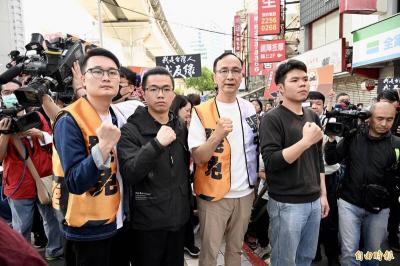The army is scheduled to receive this year the first batch of newly ordered 155mm M109A6 Paladin self-propelled howitzers from the US, defense sources said yesterday.
The M109A6 cannon, which the US agreed to sell to Taiwan two years ago, is the most technologically advanced artillery in service with the US army.
It is also to become the best of its kind in the Taiwan army, whose artillery is largely obsolete by world standards.
The army has ordered more than 140 M109A6s from the US at a cost of around NT$10 billion. It will be the largest arms purchase that the army has made in recent years.
The deal was approved by Washington two years ago and the first batch of cannons are scheduled to be delivered to the army this year.
The M109A6 is the latest version of the 155mm M109-series self-propelled howitzers which the US has developed since the 1950s.
Taiwan's army has earlier versions of the M109, but they are no match for the A6 model.
The earlier M109s, already in service with the army, include the A1B, A2, and A5 types. They are used mainly by the armored brigades. Most of these howitzers have been operational for more than two decades.
The A6 type is much superior to previous models, primarily because of improvement in the electronic systems.
In a book introducing the weapon systems of Taiwan's military, Eleven Jan (詹皓), a senior editor with Defense Technology Monthly magazine, says that the new howitzer can serve not only as a cannon but also as a command vehicle.
"One M109A6 can provide fire command and control to several A5 models at the same time. It can operate independently without the help of forward observers," Jan said.
"The system boasts a much greater survivability in battlefield than previous M109s with its ability to shoot from the move and to `shoot and scoot,''' Jan said. "That the army chooses the M109A6 as its major artillery in the future indicates a trend toward automation."
The army has confirmed that it plans to buy more technologically advanced weapon systems which feature higher automation and require fewer men to operate.
The M109A6, for example, needs only four crew, while previous M109 models such as the A2 and A5 require six soldiers to operate.
The army is also eyeing another hgihly automatic weapons system, the M1A2 main battle tank.
The US has agreed in principle to sell around 50 M1A2s to Taiwan, but the deal has been postponed due to a lack of money on the Taiwan side, defense sources said.
Over the next 10 years, sources said, the navy will get the lion's share of defense budgets.
That will force the army to delay some of its major armament procurement plans, sources said.

The Ministry of Economic Affairs has fined Taobao NT$1.2 million (US$36,900) for advertisements that exceeded its approved business scope and ordered the Chinese e-commerce platform to make corrections in the first half of this year or its license would be revoked. Lawmakers have called for stricter supervision of Chinese e-commerce platforms and more stringent measures to prevent China from laundering its goods through Taiwan as US President Donald Trump’s administration cracks down on origin laundering. The legislature’s Finance Committee yesterday met to discuss policies to prevent China from dumping goods in Taiwan, inviting government agencies to report on the matter. Democratic Progressive Party

Taiwan and its Pacific ally Tuvalu on Tuesday signed two accords aimed at facilitating bilateral cooperation on labor affairs, according to Taiwan’s Ministry of Foreign Affairs (MOFA). The governments inked two agreements in Taipei, witnessed by Foreign Minister Lin Chia-lung (林佳龍) and visiting Deputy Tuvaluan Prime Minister Panapasi Nelesone, MOFA said in a news release. According to MOFA, the agreements will facilitate cooperation on labor issues and allow the two sides to mutually recognize seafarers’ certificates and related training. Taiwan would also continue to collaborate with Tuvalu across various fields to promote economic prosperity as well as the well-being of their

The Taipei District Prosecutors’ Office has continued its investigation into allegations of forged signatures in recall efforts today by searching the Chinese Nationalist Party’s (KMT) city chapter and questioning several personnel including the chapter director, according to media reports. Among those questioned and detained were KMT Taipei chapter director Huang Lu Chin-ju (黃呂錦茹), chapter secretary-general Chu Wen-ching (初文卿), chapter secretary Yao Fu-wen (姚富文) and first district committee executive director Tseng Fan-chuan (曾繁川). Prosecutors said they would not confirm reports about who had been summoned. The investigation centers on allegations that the ongoing recall campaigns targeting Democratic Progressive Party legislators Rosalia Wu (吳思瑤)

Several Chinese Nationalist Party (KMT) officials including Chairman Eric Chu (朱立倫) are to be summoned for questioning and then transferred to prosecutors for holding an illegal assembly in Taipei last night, the Taipei Police said today. Chu and two others hosted an illegal assembly and are to be requested to explain their actions, the Taipei City Police Department's Zhongzheng (中正) First Precinct said, referring to a protest held after Huang Lu Chin-ju (黃呂錦茹), KMT Taipei's chapter director, and several other KMT staffers were questioned for alleged signature forgery in recall petitions against Democratic Progressive Party (DPP) legislators. Taipei prosecutors had filed